Keiichiro Shibuya’s Android Opera®︎ MIRROR had its run at the Théâtre du Châtelet in Paris for three days from Wednesday, June 21st, 2023, and concluded with great success. The locally-edited performance video is now available.
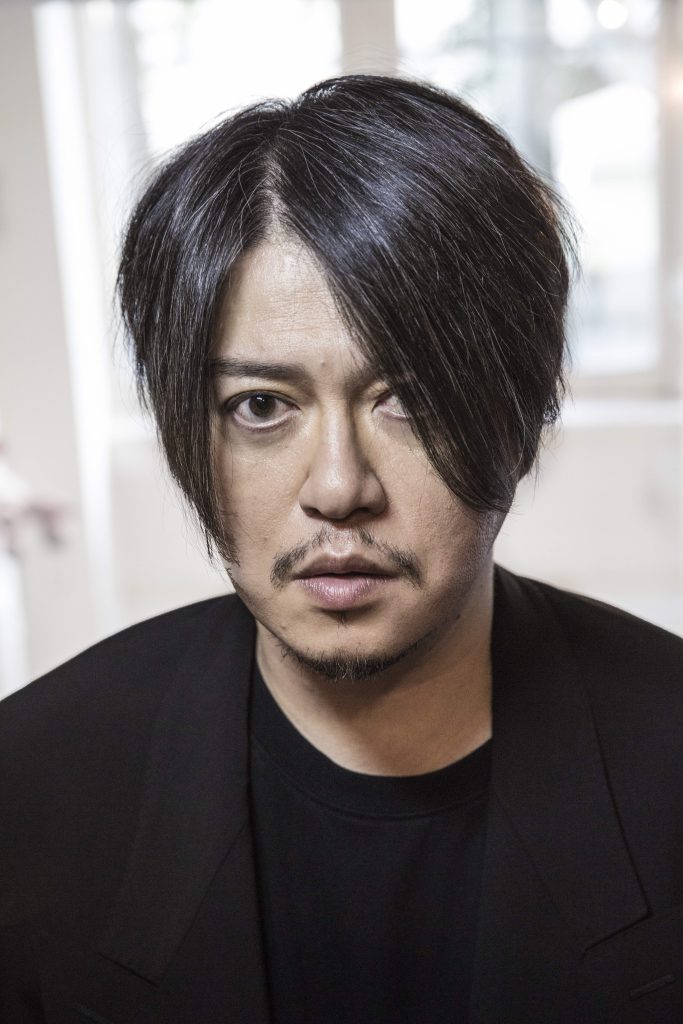
Keiichiro Shibuya
After graduating from the Tokyo University of the Arts with a B.A. in Music Composition, Keiichiro Shibuya founded the music label ATAK in 2002. His work encompasses various mediums, from innovative electronic music to piano solos, operas, film scores, and sound installations.
In 2012, Shibuya composed a Vocaloid opera with no human performers, The End, starring Hatsune Miku. The performance premiered at the Théâtre du Châtelet in Paris and has since toured around the globe. He collaborated with various artists and showed the opera at venues such as the Palais de Tokyo and Opéra national de Paris. In 2018, he composed the Android Opera®︎, Scary Beauty, which utilizes AI and stars a singing android that also conducts an orchestra. The opera has been shown in Japan, Europe, and the UAE. In August 2021, Shibuya’s opera, Super Angels, had its world premiere at the New National Theater Tokyo. In March 2022, he brought his new Android Opera®︎, MIRROR, a collaboration between an android, Buddhist music, shomyo, and an orchestra from the UAE, to Expo 2020 Dubai.
Furthermore, he has also scored for many films. In September 2020, he created the film score for Midnight Swan and won the 75th Music Award at the Mainichi Film Awards and the 30th Japan Movie Critics Award. In August, he composed the soundtrack for KAGUYA BY GUCCI, a short film, and appeared in it with an android. Shibuya recently established the Android and Music Science Laboratory (AMSL), a science laboratory of androids and music, at the Osaka University of Arts and currently teaches there as a visiting professor. He has also announced his collaboration with Sony CSL Paris to research AI and music further. He explores the boundary between technology and life and death.
ATAK:http://atak.jp
Twitter:@keiichiroshibuy
Instagram:@keiichiroshibuy
Photography Claude Gassian
Returning to the Théâtre du Châtelet in Paris ten years after THE END
The stage was comprised of Android Alter 4 at its center, joined by Shibuya playing piano and electronic sonic elements, 47-piece orchestra Appassionato, five Buddhist monks reciting Koyasan chants, and a video by Justine Emard, an artist and old friend of Shibuya’s. This dense musical experience created by humans and AI was both complex and brilliant. The Théâtre du Châtelet, the oldest theater in Paris, filled with discomfort, tension, and even confusion, but culminated in a festive feeling by the end of the performance, as predicted by Alter 4’s declaration: “Let’s celebrate this new experience together”.
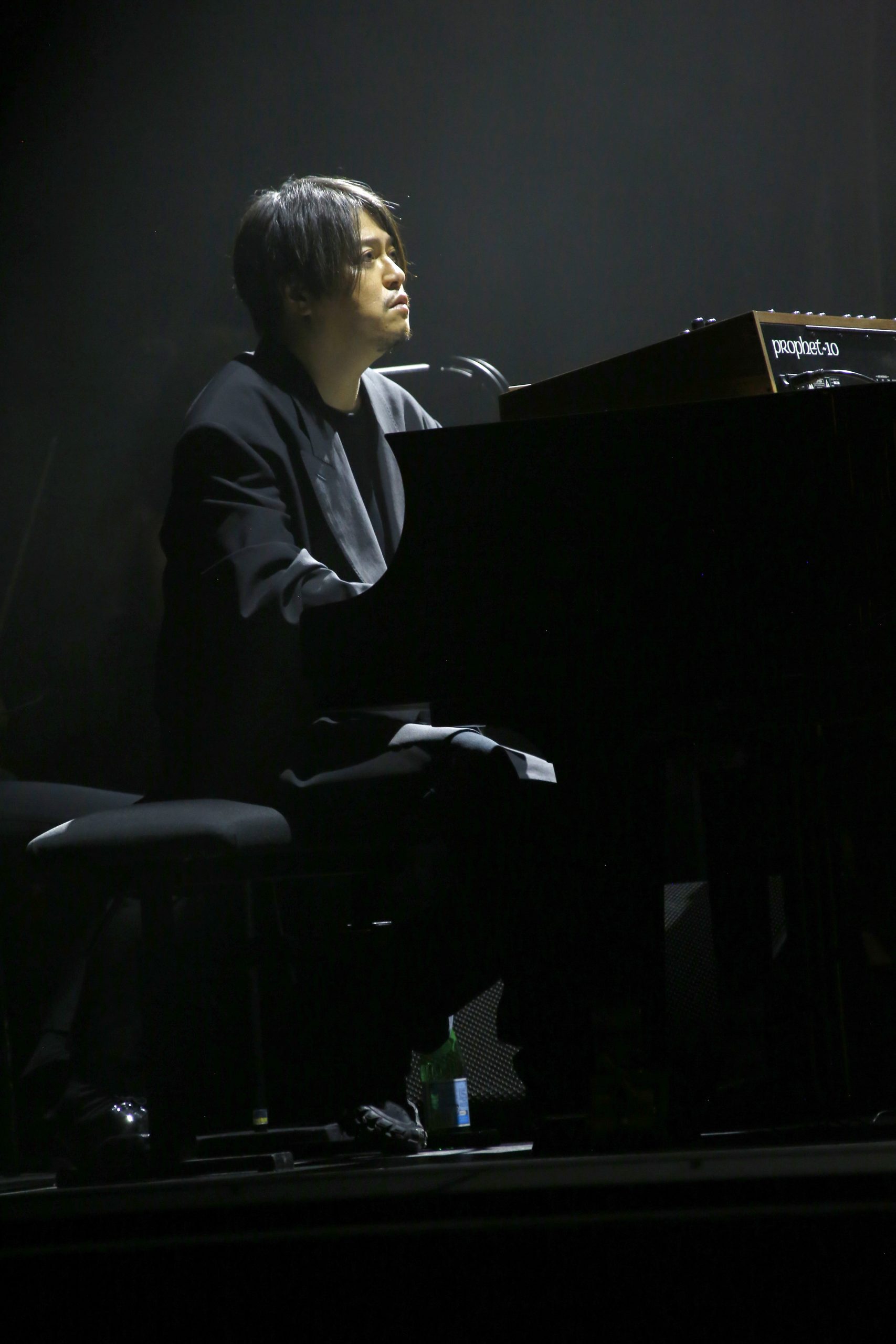
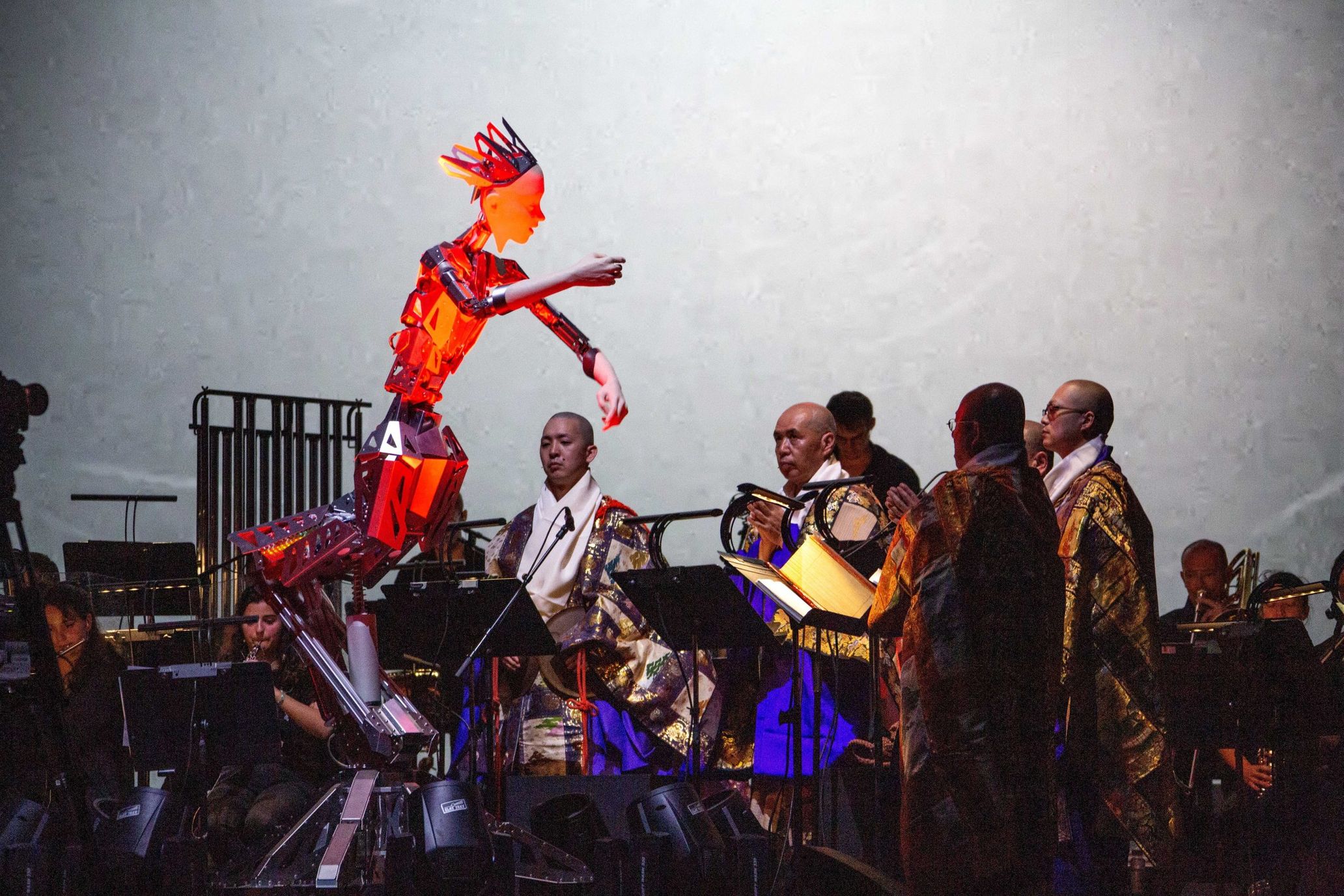
Shibuya and the Théâtre du Châtelet share a deep connection. In 2013, the venue’s then-manager Jean-Luc Choplin was so struck by Shibuya’s vocaloid opera THE END that he booked a performance for the coming months then and there. The production subsequently toured many countries, becoming the catalyst for Shibuya’s work in Europe. Later, he held solo concerts at the same theater and was offered a studio there, establishing the Théâtre du Châtelet as his European base. Ten years after THE END, MIRROR premiered at the same theater on the 21st, coincidentally coinciding with Paris Fashion Week and the day of Fête de la musique, an all-night national music festival in France.
An unparalleled musical experience created by humans and an Android/AI
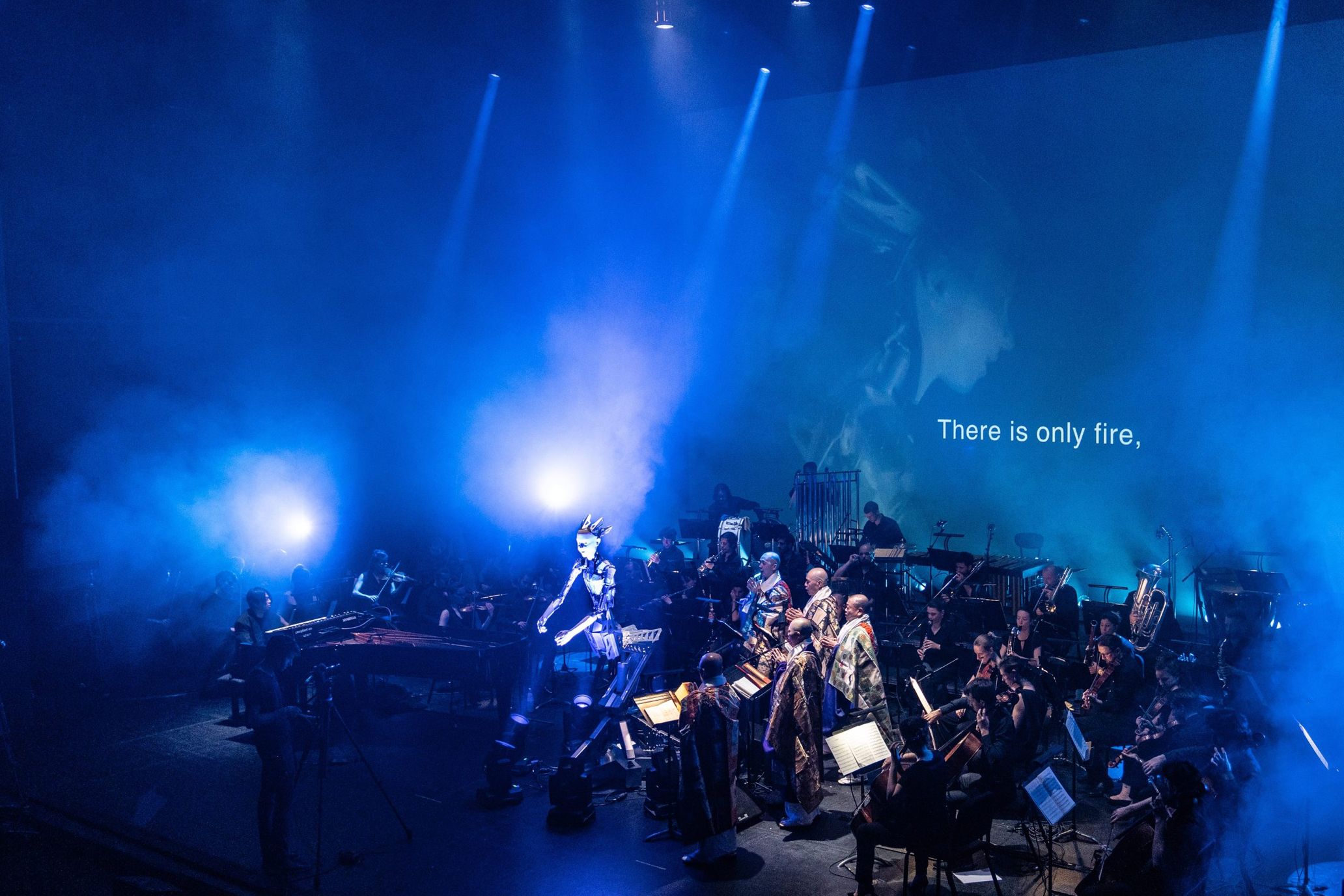
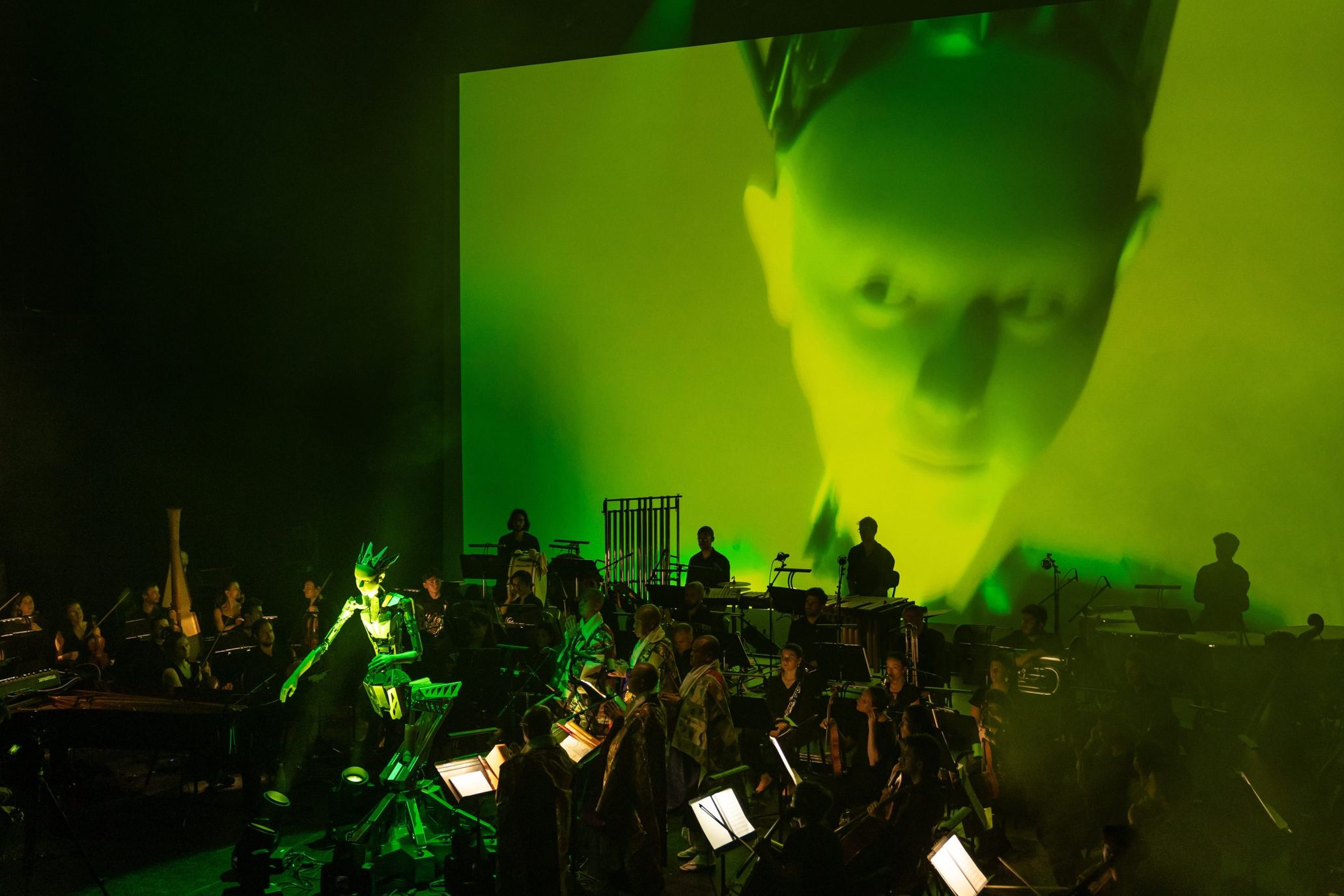
Even before the performance began, the reveal of moving lights enhanced the space and added to the audience’s excitement. The stage was surrounded by layered curtains and an ambience created by the five tiers of seating, and electronic sounds could be heard faintly just before curtain. As the lights dimmed, the overture “MIRROR” began, which also served as a heartbeat-like sound. The curtain rose as the sound of a conch shell rang out, revealing over fifty people on stage including the orchestra Appassionato, Shibuya, and the five monks. The android Alter 4 stood in the center, towering over everyone.
The metallic gleam and unusual appearance of Alter 4 attracted everyone’s gaze. “Android is a Mirror”, echoed the Android’s artificial voice, while the orchestra and chants by the five monks, including Eizen Fujiwara, were layered on top. With the addition of Justine Emard’s visual performance, the overture ended with a declaration from Alter 4: “Let’s celebrate this new experience together”. This was immediately followed by a transition into “Scary Beauty”, accompanied by the sound of the hachi (a cymbal-like instrument used in Buddhist music).
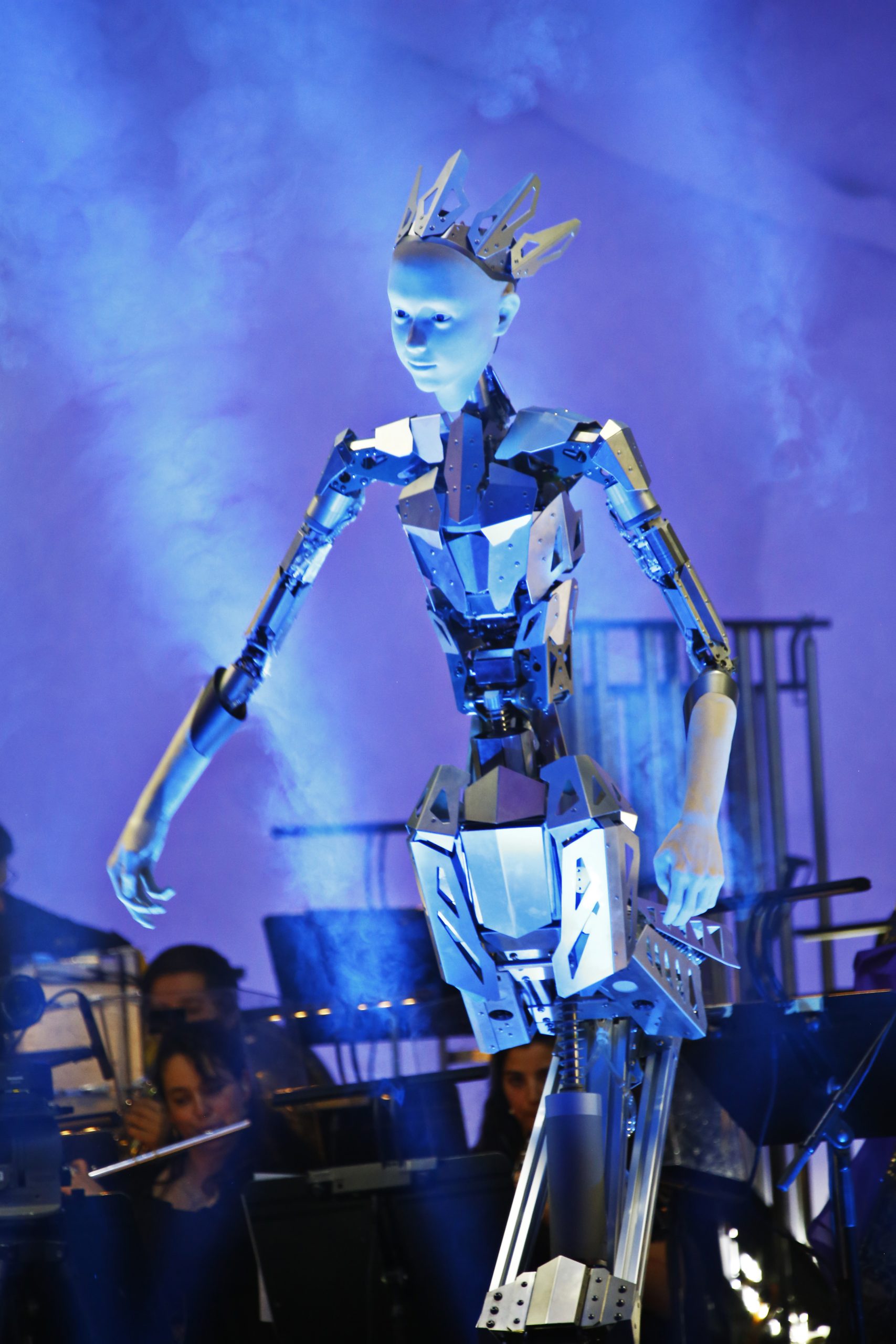
The combination of graceful orchestration and complex dissonance captivated the audience. Alter 4’s singing and the monks’ chanting worked in tandem, leading to an over-stimulating climax. Alter 4’s undeniable presence and the epic spectacle created by humans, robots, and artificial intelligence left the audience excited, tense, and somewhat confused.
Recitative improvised by monks and an Android
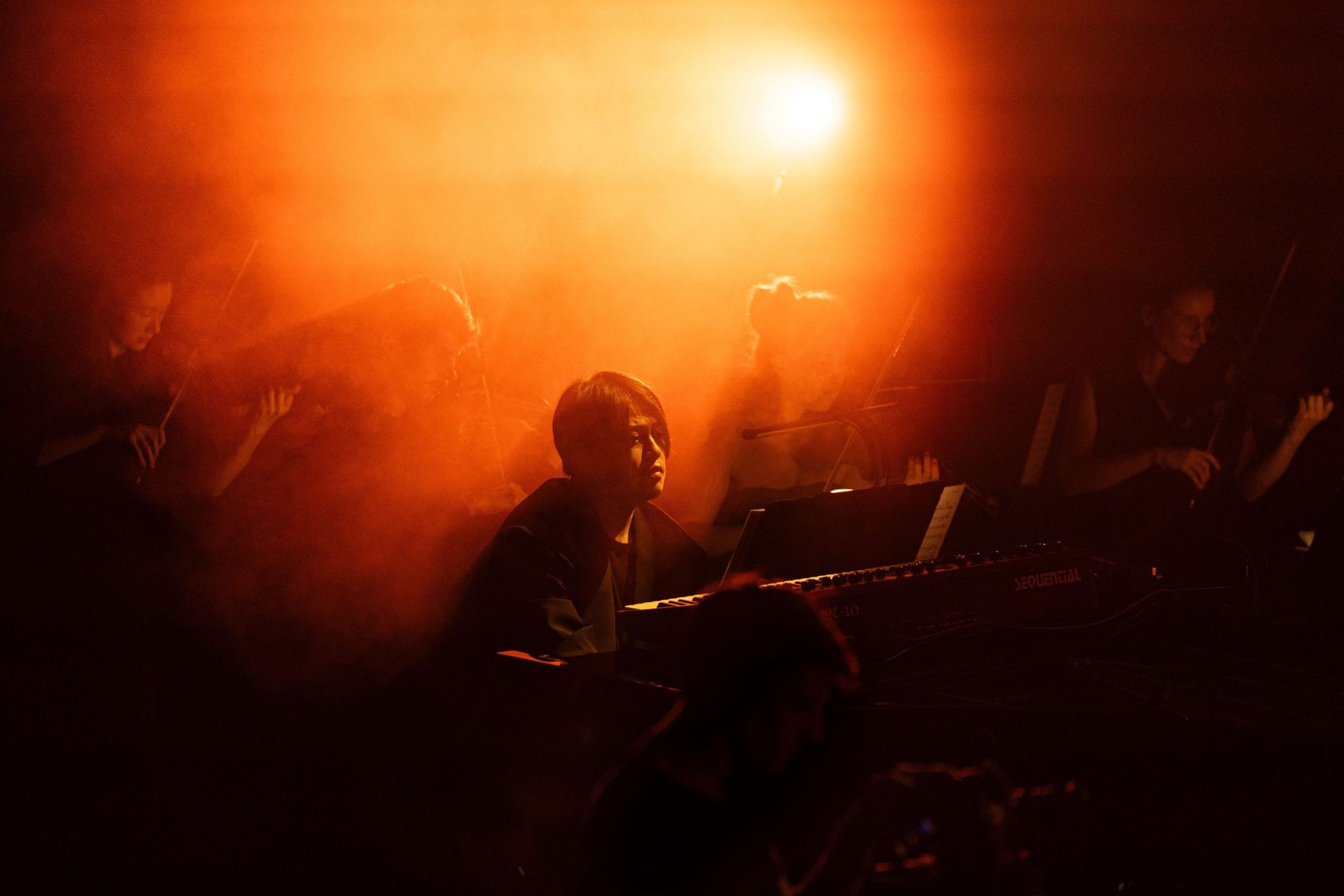
Afterward, following stage banter in French (where Alter 4 humorously referred to itself as an embodiment of AI, stating that all the words it speaks are written by ChatGPT), the performance continued with three recitatives featuring Alter 4 and the monks standing in front of computer graphics generated from 3D point cloud data scanned from Fujiwara’s temple landscape. In these recitatives, the AI, a.k.a. ChatGPT, interpreted the texts of the chants sung along with the electronics sounds, and created lyrics from there. Alter 4 improvised obligato on the spot as the chants’ responses. These improvisations created unique moments in each of the three performances, with the ever-changing chants from the monks and the AI creating an extreme contrast between “the monks singing the oldest music” and “the Android interpreting and singing it”. This portion of the performance garnered significant attention not only during the show but also from the media later on.
The third piece was an orchestral version of “BORDERLINE”, an electronic music piece released last year. The orchestration provided a beautiful backdrop to Alter 4’s artificial voice with Fujiwara’s solo chant seamlessly intertwined. Alter 4 calmly singing about the end of the world juxtaposed with the chants and orchestra’s music echoed like a requiem for the apocalypse.
“The End of Europe” parodied by Android and orchestras, world peace prayed by monks
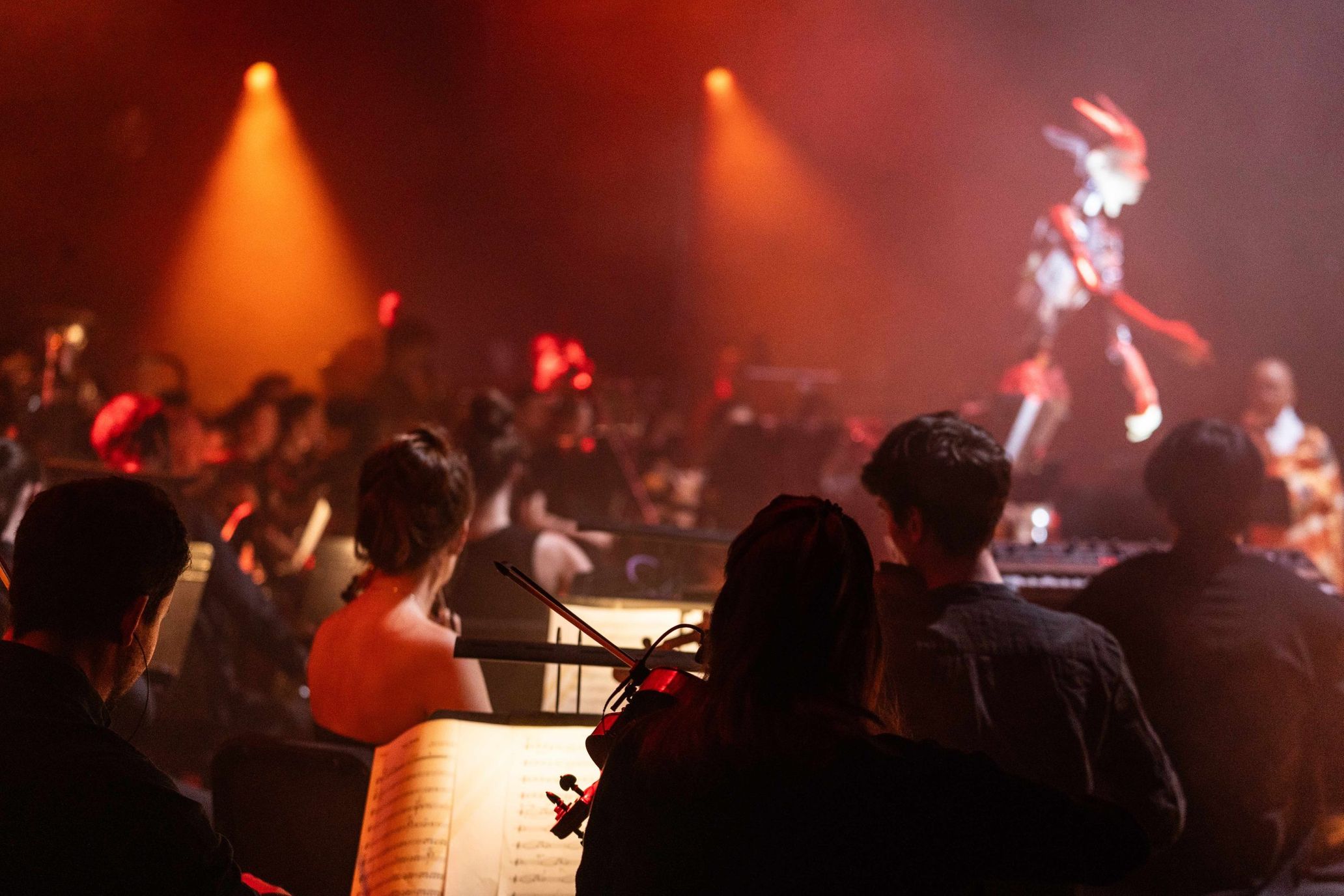
Next came “On Certainty”, featuring excerpts from a Wittgenstein text. In this piece, Shibuya left the stage, allowing Alter 4 to take its solo, accompanied by the orchestra. Parts of Mahler’s orchestral piece were repeated and changed, while Alter 4 sang a long sustained note impossible for a human singer. This led to a sudden climax that parodied “the end of Europe”. Alter 4 flawlessly sang complicated music without human intervention from Shibuya or the monks, while the music was created by automatically converting from the text of Wittgenstein to the score. This solo from Alter 4 was met with a positive response and applause from the audience, which left a lasting impression.
The scene where the monks chanted while circling Alter 4 in the processional was followed by the dramatic “The Decay of the Angel”, prompted by Hoshin Tani’s powerful chant. The audience’s excitement soared as the performance reached another climax during “Midnight Swan”, where the monks incorporated elaborate rituals using Buddhist scriptures to pray for world peace.
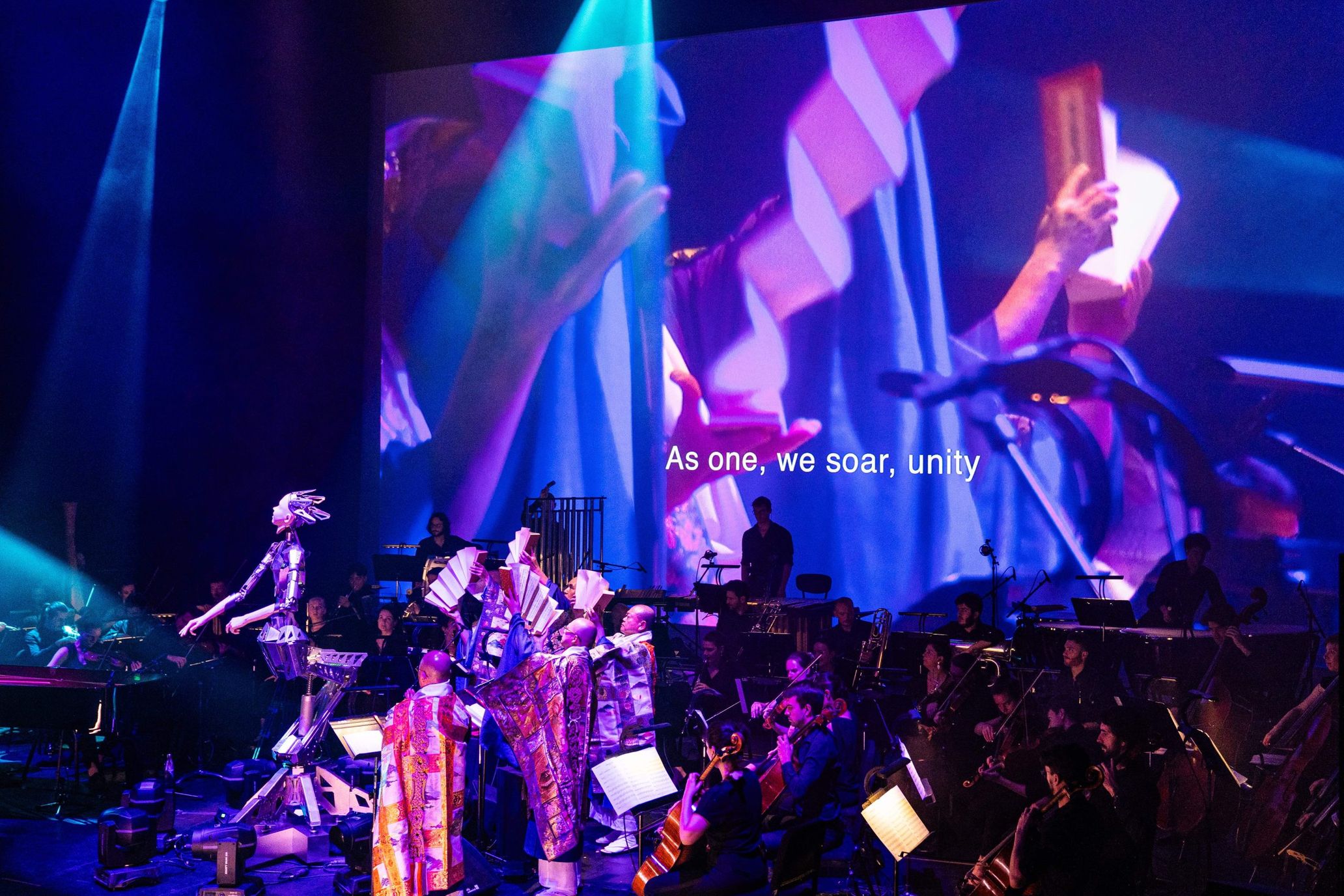
Each song’s dramaturgy and sensory stimulation provided no respite for the audience. Following a serene interlude, Alter 4, the monks, and Shibuya’s Prophet 10 finally engaged in the last recitative, a communication between the monk and the Android. Subsequently, a multi-layered orchestral version of “I Come from the Moon”, the soundtrack for last year’s acclaimed short film Kaguya by Gucci, played. Alter 4’s girlish, artificial voice in the chorus contrasted with its androgynous character beautifully. As it responded to the monks’ voices, it transformed while passionately singing and dancing in response to the message of the song.
“Lust”, the epic last song about affirmations of desire, and the encore song “Scary Beauty”, performed by Shibuya and the Android
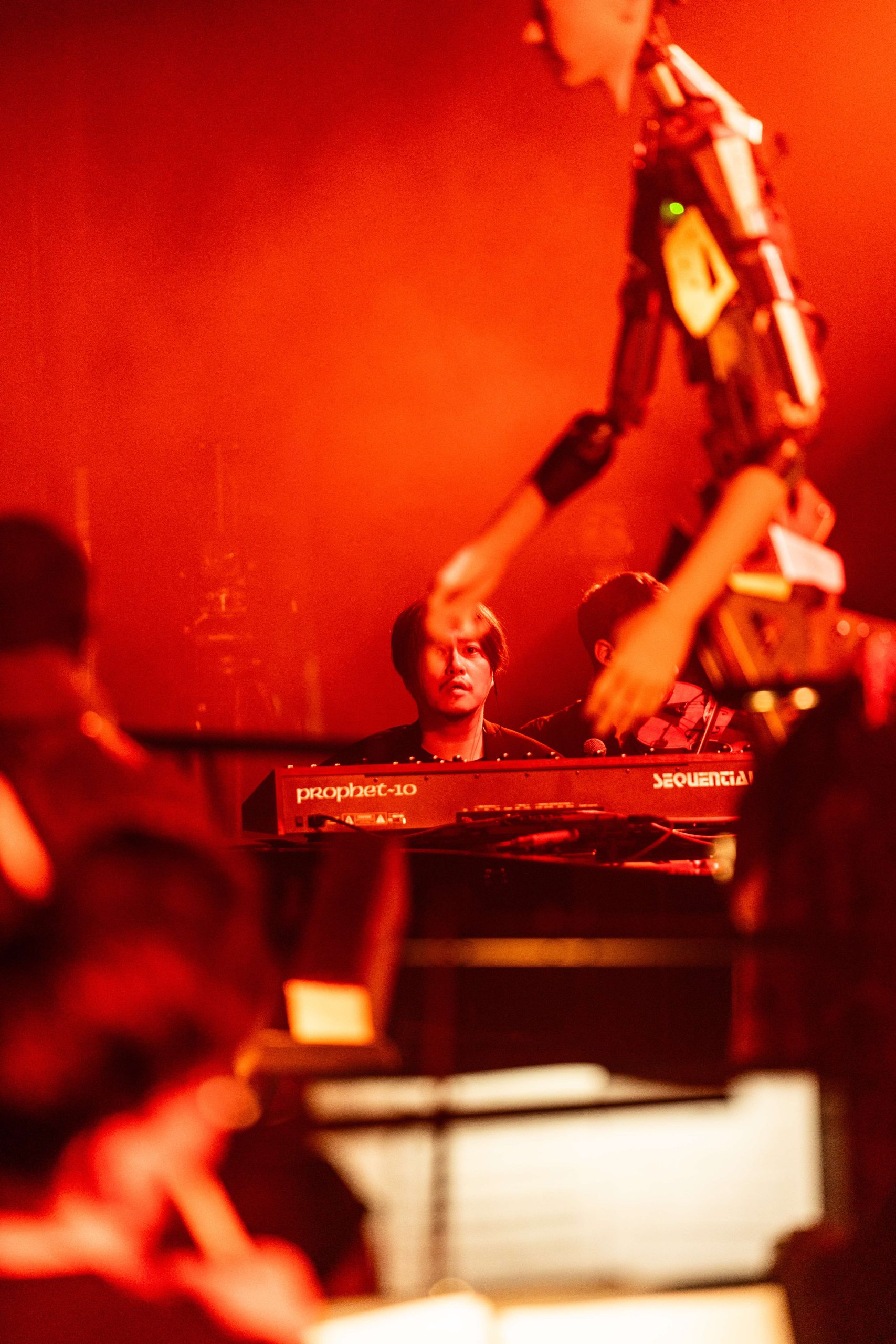
Lastly, the performance ended with “Lust”, a newly composed song for this performance. Set to a beautiful melody that evoked areligious brilliance, the song featured Alter 4 singing affirmations of desire based on the “Rishukyo”, a scripture of esoteric Buddhism, founded upon the “Jyushichi Shoujo Ku” chant, sang by the monks. The monks circled around Alter 4 once again, as if in eternal rotation, while chanting the name of the Dainichi Nyorai (The Cosmic Buddha), gradually slowing down yet never stopping, symbolizing the cycle of life and rebirth. The chants, the music and Alter 4’s soaring high notes converged into a brilliant climax under the bright lights before the curtain fell. Powerful applause and cheers filled the theater.
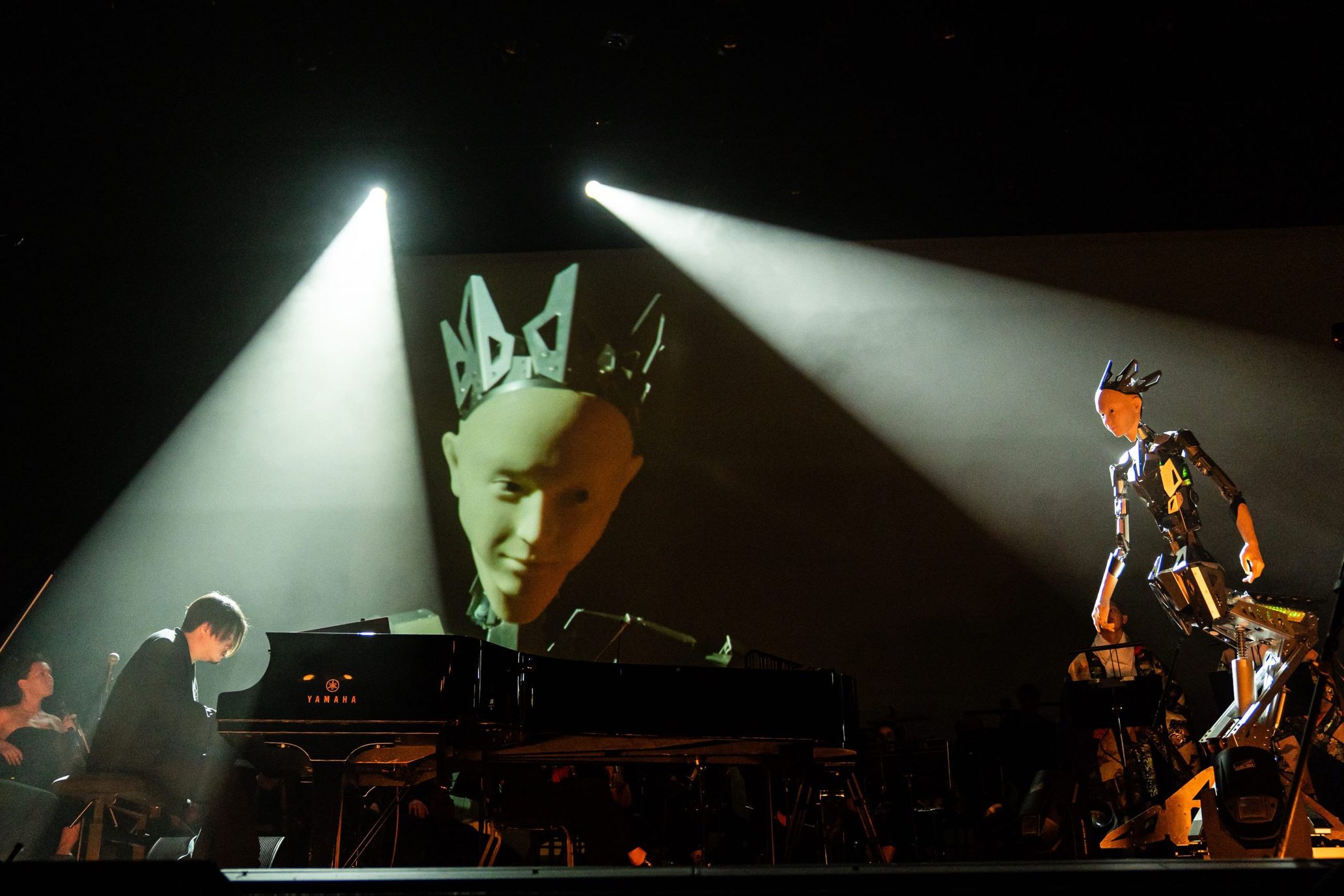
For the encore after the curtain call, Shibuya and Alter 4 performed “Scary Beauty” while gazing at each other. The audience, who might have been somewhat overwhelmed by sensory overload during the main performance, now expressed even stronger praise, prompting a long, second curtain call.
The current state of Android Opera®️, where humans and technology conflict
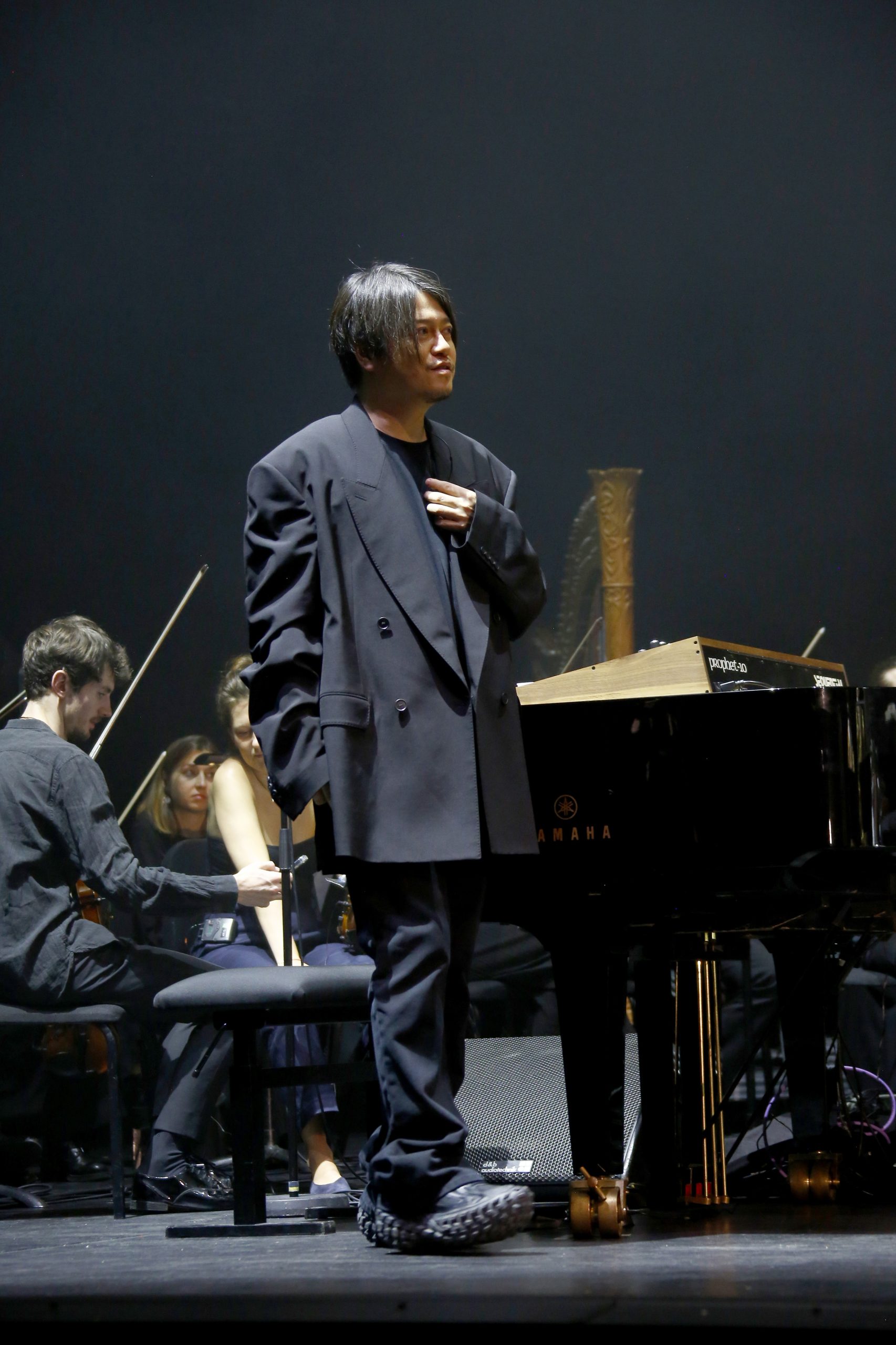
In Android Opera®️ “MIRROR”, Shibuya composed a new song exclusively for this performance, along with seven other pieces for which he arranged the orchestration. The entire performance, twelve pieces including the recitatives and the encore, lasted over seventy minutes. Alter 4’s artificial voice sang over the orchestra, Shibuya’s piano and his electronic sounds, while the Koyasan chants were overlaid, providing a stark contrast to the rest of the sound. In between songs, a recitative in which Alter 4 improvised responses to the monks’ chants developed.
The lyrics sung by Alter 4 were taken from texts by “human” novelists and philosophers such as Michel Houellebecq and Ludwig Wittgenstein, paired with texts by GPT, or AI. In other words, ChatGPT interpreted the texts of esoteric Buddhism, generating the themes for the songs and the lyrics for Alter 4’s improvisations in real-time during the recitatives and other pieces. This interaction between humans and technology is different from the previous approach where the performances were conducted by the autonomy of artificial intelligence. This new method constitutes the current state of Android Opera®️.
Shibuya’s incorporation of technology into his creations and his approach to blurring the boundaries between life and non-life have attracted significant attention from local media interested in AI and creation. Although the challenges of Android Opera®️, which has been ongoing since 2014, achieved certain results with “MIRROR”, both the artist and the work are still on a journey of further evolution. Keiichiro Shibuya’s work is far from being overlooked, and we can anticipate even more from him in the future.
Part of the performance video will be available for public viewing from today, while the full video is scheduled for online distribution as part of the Japan Foundation’s “STAGE BEYOND BORDERS” program in February 2024.
Translation Mimiko Goldstein
■Program
01. MIRROR
02. Scary Beauty
03. Recitativo 1
04. BORDERLINE
05. On Certainty
06. Recitativo 2
07. The Decay of the Angel
08. Midnight Swan
09. Recitativo 3
10. I come from the Moon
11. Lust
12. Encore – Scary Beauty
■Android Opera®︎ MIRROR at the Théâtre du Châtelet in Paris
Date: June 21st – 22nd – 23rd, 2023
Place: the Théâtre du Châtelet in Paris
Official web site: https://www.chatelet.com/programmation/saison-2022-2023/android-opera-mirror/
■Credit
Concept, composition, piano, electronics: Keiichiro Shibuya
Lyrics: exerpts from The Possibility of an Island of Michel Houellebecq, On Certainty of Ludwig Wittgenstein*, as well as generated by GPT technology
Vocal: Android – Alter4
Buddhist Chant: Eizen Fujiwara, Yasuhiro Yamamoto, Taiko Kashihara, Hoshin Tani, Shoei Kametani members of the ensemble Koyasan Shomyo
Video creation: Justine Emard
Android programming: Shintaro Imai
Android design: Hiroshi Ishiguro
Orchestra Appassionato
*Courtesy of the Master and Fellows of Trinity College Cambridge, translated into French by Danièle Moyal Sharrock © Editions Gallimard.
Artistc direction: Keiichiro Shibuya
Orchestration: Keiichiro Shibuya
Sound design: Yuki Suzuki
Production sound engineer: Unisson Design
Light design: Go Ueda
Android real-time projection: Kotaro Konishi
Stage Manager: So Ozaki
Assistant of Justine Emard: Bérangère Pollet, with the software assistance of Thomas Zaderatzky
Assistant of production: Shigeru Ogawa
Recording
Sound recording: Unisson Design, François Baurin
Filming: Jérémie Schellaert
Communication: Thierry Messonnier
Graphic design: Ryoji Tanaka (Semitransparent Design)
Direction of production: Natsumi Matsumoto
Production: ATAK
Co-réalisation: Théâtre du Châtelet, ATAK, The Japan Foundation
Android – Alter4 belongs to Osaka University of Arts
Technical Support: NATIVE INSTRUMENTS, Yamaha Corporation, YAMAHA MUSIC JAPAN CO., LTD., Sibelius by Rygasound, Genelec, Sony Computer Science Laboratories, Inc.
Android Music and Science Laboratory: Kawagoshi Sota, Kento Tanaka, Takumi Morimoto
Assistant of orchestrastion and production of music scores: Hiroto Kikukawa, Yuto Moritani, Yoko Nishimura
Special thanks to Kazuyo Sejima & Associates, Aya Soejima, Noriko Carpentier-Tominaga, Takashi Ikegami, Kenshu Shintsubo, Ayaka Endo, Nino Satoru, Christophe Brunnquell, Jean-Luc Choplin

